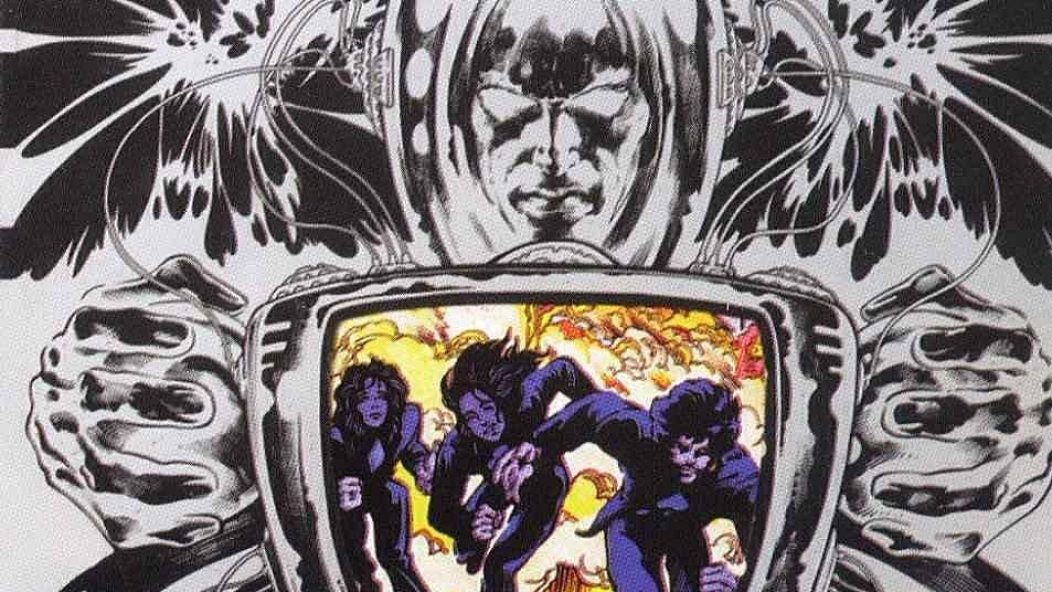
The Jewel of Ireland: Thin Lizzy's 'Jailbreak' Turns 40

…
Plenty of ink, digital and otherwise, has been spilled about Thin Lizzy over the last decade. That’s a good thing; along with Blue Oyster Cult, they’ve been the perennial “most overlooked/underappreciated” rock band of the ’70s. Yet if it wasn’t for the American commercial breakthrough of Jailbreak, which was released 40 years ago tomorrow, Lynott & Co. would still be just another classic rock almost-was. It’s not their best album – this writer would bestow that title on either Bad Reputation or Black Rose, depending on the day – but it was a perfect storm of singular musicianship, Irish balladeering and populist songwriting that hit at the right moment. Not just the right moment, but Thin Lizzy’s last moment; Jailbreak was the band’s sixth album, and Vertigo Records was ready to write them off after the lackluster sales of previous releases Nightlife and Fighting. Label pressure, other bands getting heavier, Phil Lynott’s growth as a songwriter, the legendary Scott Gorham/Brian Robertson twin-guitar attack in peak form . . . all of that and more was distilled into 36 minutes of pure magic.
Lynott has always been the central figure in Lizzy’s dynasty, crafting tales of love and loss through creative character-cyphers, and there’s plenty of them to be found on Jailbreak: The lonesome Western character in “Cowboy Song,” the avenging angel of “Warriors,” the crestfallen lothario in “Romeo and the Lonely Girl.” Yet the album’s biggest hits invoke a strong sense of male camaraderie. “The Boys Are Back In Town” is self-explanatory, whereas the title track finds Lynott and his boys “gettin’ up and going down” and “bustin’ out dead or alive” and “Fight Or Fall” sees the singer declaring “Brothers, we gotta fight for one another!” Extrapolating that theme of solidarity, the epic Celtic battle tale “Emerald” tells of a band of Irish rebels fighting off the ruling despots.
The connection with their homeland was also more than songs about battling clans; fellow Irishman Van Morrison was a vital influence on Lynott’s poetic style when it came to more introspective cuts like “Angel From The Coast” and “Running Back,” as well as James Joyce’s stream-of-consciousness storytelling style.
Others have pointed to Springsteen and Dylan as strong inspirations – Robert Christgau, in particular, took the Springsteen connection to a dickish extreme – but those are broad strokes. The juxtaposition of hard rocking rebel with a heart of gold was rare in a world of Paul Stanleys and Steven Tylers. On Jailbreak Lynott wrote with a sincerity and earnestness that appealed to rock audiences on a wide scale.
Jailbreak‘s influence on hard rock and metal is immense, to the point now where lazy PR writers will call any band that harmonizes guitars “Lizzy-esque.” Gorham and Robertson had played together in Thin Lizzy since the Nightlife album, but those songs were more subdued and could almost be classified as soft rock. Fighting brought a harder edge to the proceedings, which ultimately coalesced with the more memorable tunes they wrote with Lynott on Jailbreak. The fingerprints of “Emerald” are all over Iron Maiden’s first several albums, most notably Killers. Likewise, Mastodon covered it on the special edition of their first album, Remission and have made it part of their live set off and on. The title track has been covered by bands as diverse as Fu Manchu, Anthrax and Six Feet Under, and the album’s success in America – it’s still their only Gold record here – birthed countless bands emulating their winning formula. Even 40 years later, new acts like Khemmis and The Dagger name-drop Lizzy during interviews but also walk the walk with songs bearing the swagger, confidence and subtle vulnerability that made us all fall in love with their predecessors in the first place.











